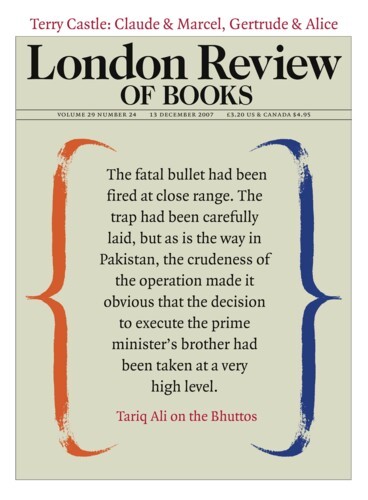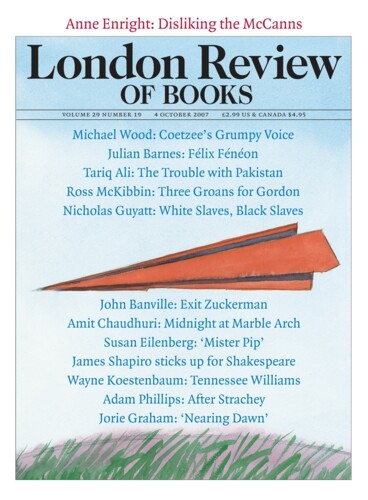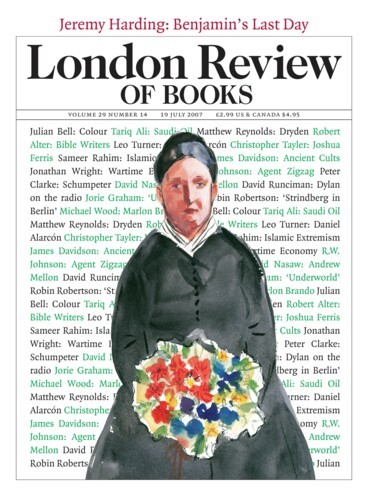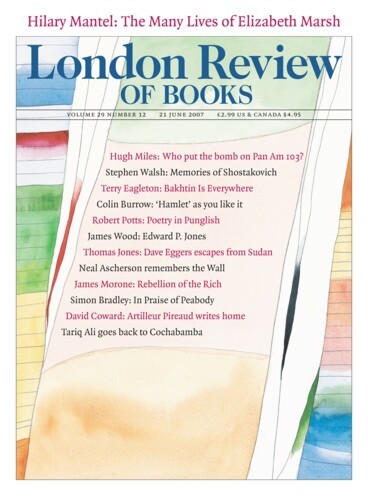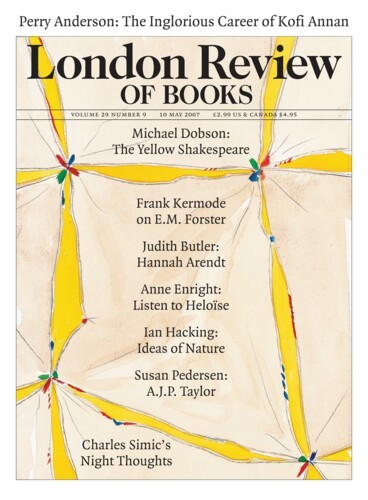Daughter of the West: the Bhuttos
Tariq Ali, 13 December 2007
The fatal bullet had been fired at close range. The trap had been carefully laid, but as is the way in Pakistan, the crudeness of the operation – false entries in police logbooks, lost evidence, witnesses arrested and intimidated, the provincial PPP governor (regarded as untrustworthy) dispatched to a non-event in Egypt, a policeman killed who they feared might talk – made it obvious that the decision to execute the prime minister’s brother had been taken at a very high level.
